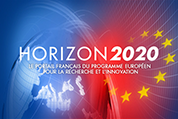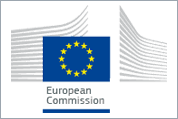Training
WAVES ESRs will be trained at different levels, ensuring their progressive education, helping them to achieve their own professional development plan and preparing them for a wide variety of intersectorial career opportunities.
The training activities are coordinated by the WP4:
Network-wide discipline-related training:
ESRs will have access to the discipline-related courses offered by all WAVES academic partner institutions. WAVES partners have intensive training programmes for graduate students, and will additionally organize WAVES-specific Short-courses. Both introductory courses, to broaden the scientific scope of the ESRs, and graduate courses are offered, covering cutting-edge research in all WAVES-related topics. ESRs will devote an average of four weeks/year to course work. Consultation with their local supervisor will help to define the most appropriate course package. Students recruited by industrial partners will benefit from graduate programs through their affiliated university.
Network-wide research-related training:
Besides research training by the ESRs’ local supervisors, WAVES training relies strongly on secondments, with much emphasis on inter-sectorial (academia industry) secondments. All ESRs have at least one secondment, and most ESRs have at least one industrial secondment.
Network-wide workshops:
Six Workshops will be organized in the framework of WAVES. Workshops are a deliverable of the “Training” WP4. Their agendas will optimize training of ESRs, who will present their research results via oral and poster presentations, and participate in interdisciplinary/ inter-sectorial discussions on their findings and their implications. They will thus develop presentation and discussion skills that are not easily learned through “classical” graduate school education. After a first workshop to introduce key ideas and brainstorm challenges, each workshop will be devoted to one WAVES research topic of current interest: noise-based imaging, 3D printing of wave propagation media, and industrial applications of WAVES. A final workshop will define new strategies for the future.
External training:
ESRs will be encouraged to present their research at international conferences and workshops (including mandatory WAVES meetings). They will also actively participate in the scientific dissemination and outreach activities of Waves results to the public where appropriate.
The wide range of competences covered by WAVES will make our ESRs competitive candidates in any field where wave propagation and wave-based imaging or monitoring play a role. The close collaboration between academia and industry that forms the basis of WAVES, with three private companies, active in many European countries, as beneficiaries or partners of the project, will extend the traditional academic research training and help eliminating potential barriers to mobility.
Key Facts
- Coordinated by Université Pierre et Marie Curie
- 15 participating partners
- 6 European countries and the USA
- 15 trained fellows
- Project budget: 3 227 952.96€
- Project duration: 4 years
- WAVES is a European project funded by the European Union’s Horizon 2020 research and innovation programme under the Marie Slodowska-Curie grant agreement n° 641943.
Contact
Coordinator:
Lapo Boschi (lapo.boschi @ upmc.fr)
Project Manager
Fanny Schultz (fanny.schultz @ sorbonne-universite.fr)



